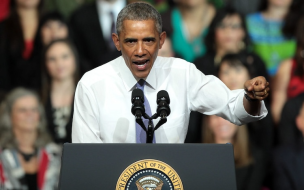“It surely helped me to increase my investment knowledge. And it adds a ‘wow’ factor to your CV,” says the vice president at Goldman in London.
Last month, thousands more financiers flocked to exam halls to take the CFA (Chartered Financial Analyst) exams at Levels I, II and III. Despite the sheer difficulty, CFA is in vogue. In 2003, there were around 50,000 charter holders — those who have passed all three levels. By 2014, this more than doubled to 120,000.
Amit’s story alludes to a perennial debate in financial services: Should you get an MBA or CFA?
Some say the low pass rates and the mind-bogglingly complex curriculum have put a premium on CFA holders. CFA is particularly hot on the buy-side.
“It dominates the MBA in the finance sector. For roles involving fund management, mergers and acquisitions, and portfolio analysis, the CFA is becoming really important,” says Steven Young, head of finance at Lancaster University Management School.
Not only is CFA sexy but it’s exclusive too. This is mostly because it’s so hard to get. Here’s a depressing stat: Just 43% of the 52,315 professionals who took the Level I exam in December last year passed it. And candidates spend 300 hours studying to prepare for each stage. “I thought of discontinuing after Level I because of the time commitment,” admits Goldman’s Amit.
However, the flexibility potentially gives it an advantage over the MBA; you can maintain a full-time job, although you may not have much of a life.
It’ll also leave your bank balance a lot healthier. Each stage of a CFA qualification costs about $1,000, while an MBA can cost well over $100,000 at an elite school. (Although, some employers foot the MBA bill and scholarships and booming. Plus, you should make a return on your investment in 3.5 years, according to the Graduate Management Admission Council.)
Despite the cost, MBAs are a common commodity, despite exceedingly low acceptance rates at top schools.
Yet Richard Bland, head of financial careers at London Business School, argues that not all MBAs are equal: “Any degree can be called generic. It’s about where you got it from,” he says.
Indeed, investment banks now target only a handful of business schools. Sam Price, graduate recruitment associate at Nomura, says: “We target IESE Business School, London Business School and INSEAD. We’ve secured nearly all the positions we needed to secure this year from those three.”
Where the MBA degree has a clear advantage is networking. Strong bonds are formed when students are meshed together on a full-time basis for up to two years. Fay Gosiengfiao, executive director for investment banking at Goldman in Hong Kong, sums it up best: “We know who goes to which firm and who to contact.”
The broader network is beneficial too. Fay got an MBA at Dartmouth’s Tuck School of Business in 2011 and, when she applied to Goldman that year, alumni at the bank prepped her for the rigorous interview process. “It was hugely helpful,” she says.
Yet the CFA Institute reckons it has decent linkage too. Stephen Horan, managing director of credentialing, says it has more than 140 local CFA member societies, which provide various networking shindigs.
Haroun Al-Mishwit, a Goldman VP of fundamental strategies in London, got his CFA charter in 2013. He says the Institute has helped him build up networks in the US, Europe and the Middle East: “Charter holders are eager to recount their experience and share best practices,” he says.
Meanwhile, some argue there’s a lack of technical financial training in MBA programs, which cover broad topics like operations, strategy and marketing.
Kate Lander, head of education in EMEA for the CFA Institute, says with simplicity: “While most graduate school programs cover a broad range of topics, the CFA program focuses specifically on investment knowledge.” With CFA, you’ll gain specialized skills like investment analysis, portfolio strategy and asset allocation. Basically, it’s super analytical.
Here, CFA may be a winner. “CFA gives me the technical advantage,” says Xiaotong Yang, who has both three-letter credentials, and who works on JPMorgan Chase’s exotic trading desk in London.
Tom Robinson, chief executive of AACSB International, the business school accrediting body, adds: “Financial markets are global, complex, competitive and dynamic. The depth and breadth of knowledge needed to practice in finance is higher than it has ever been.”
And MBA programs are arguably sliding away from finance, as grads queue up at Silicon Valley tech outfits and management consulting firms, rather than New York bank skyscrapers.
While CFA provides solid technical skills, it can be argued it lacks the management nous of an MBA that you’ll need to move into the senior ranks.
“If you’re going to lead a team it’s nice to show that you can roll up your sleeves and be the quant jock. But in terms of career progression, you’ll need broader business and management skills,” says Regina Resnick, managing director of careers at Columbia Business School.
Banks say they value the broad management experience MBAs bring, though none expressed a preference for either credential. Elle Connor, associate recruiter at Morgan Stanley in London, says: “It’s specifically important that we bring additional skill-sets onto the floor. I feel like the MBA profile…Has a mature approach to certain situations.”
Research on 13,000 résumés by eFinancialCareers suggests 14% of managing directors in finance have an MBA, compared to 10% of CFAs. Pay is tricky to determine; the CFA Institute no longer tracks it. But PayScale data suggest MBAs in finance earn $68,521; CFAs $65,960. But both sets of research are limited at best: Most CFAs work in asset management and MBAs coming out of top schools earn significantly more — at Harvard Business School in finance, $140,000.
Ultimately, MBA and CFA are not mutually exclusive, argues Viet Ha Tran, director of finance admissions at IE Business School.
JPMorgan’s Xiaotong, who handles profit and risk reporting, became a CFA charter holder in 2012, and got an MBA at Warwick Business School a year later. He says: “They complement each other.” The MBA gave Xiaotong management skills, while the CFA curriculum gave him experience in specialized investment analysis.
Combining both may help you stand out amid shrinking job opportunities — but it’ll be gruelling. Banks announced 100,000 job cuts last year alone. “CFA is a great complement to the MBA for particular sectors. It is not required for many roles, but is seen as a nice to have for some,” says Roxanne Hori, associate dean of corporate relations at NYU Stern School of Business.
At least if things go tits up in financial markets, an MBA leaves you with a diversity of options for a swift exit. “It’s not just about your first job,” says LBS’ Richard, “It’s about looking at your entire future career.”
RECAPTHA :
14
35
2d
c0








